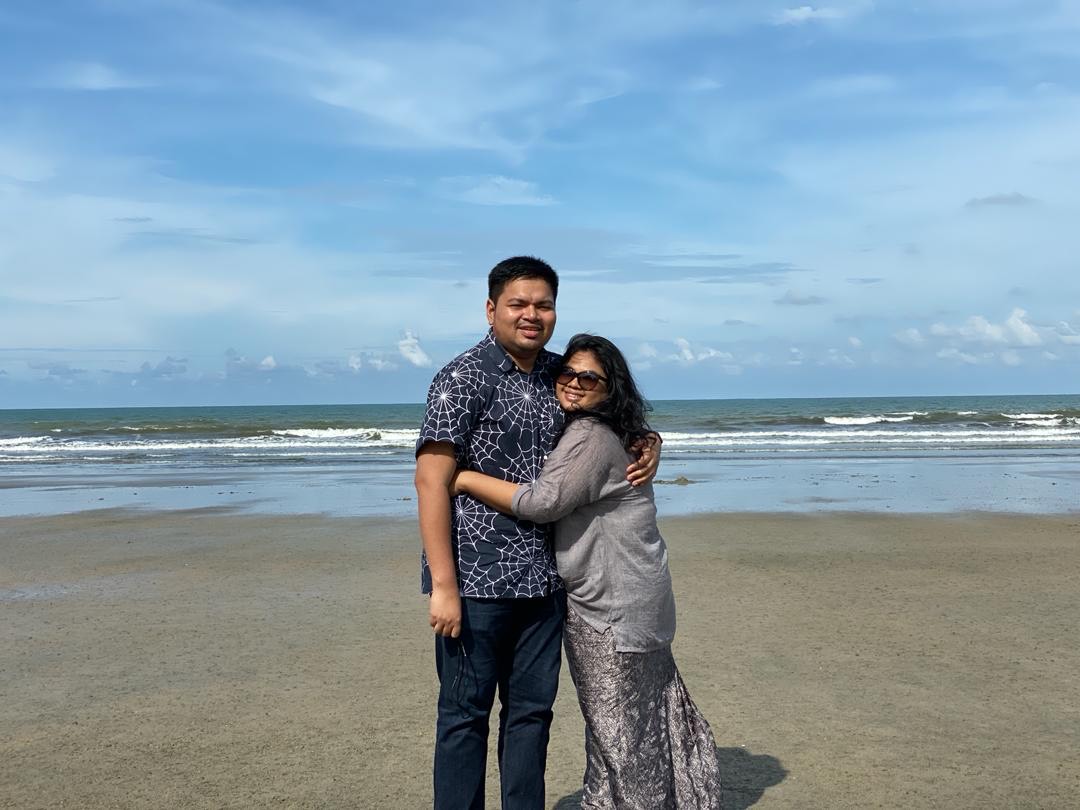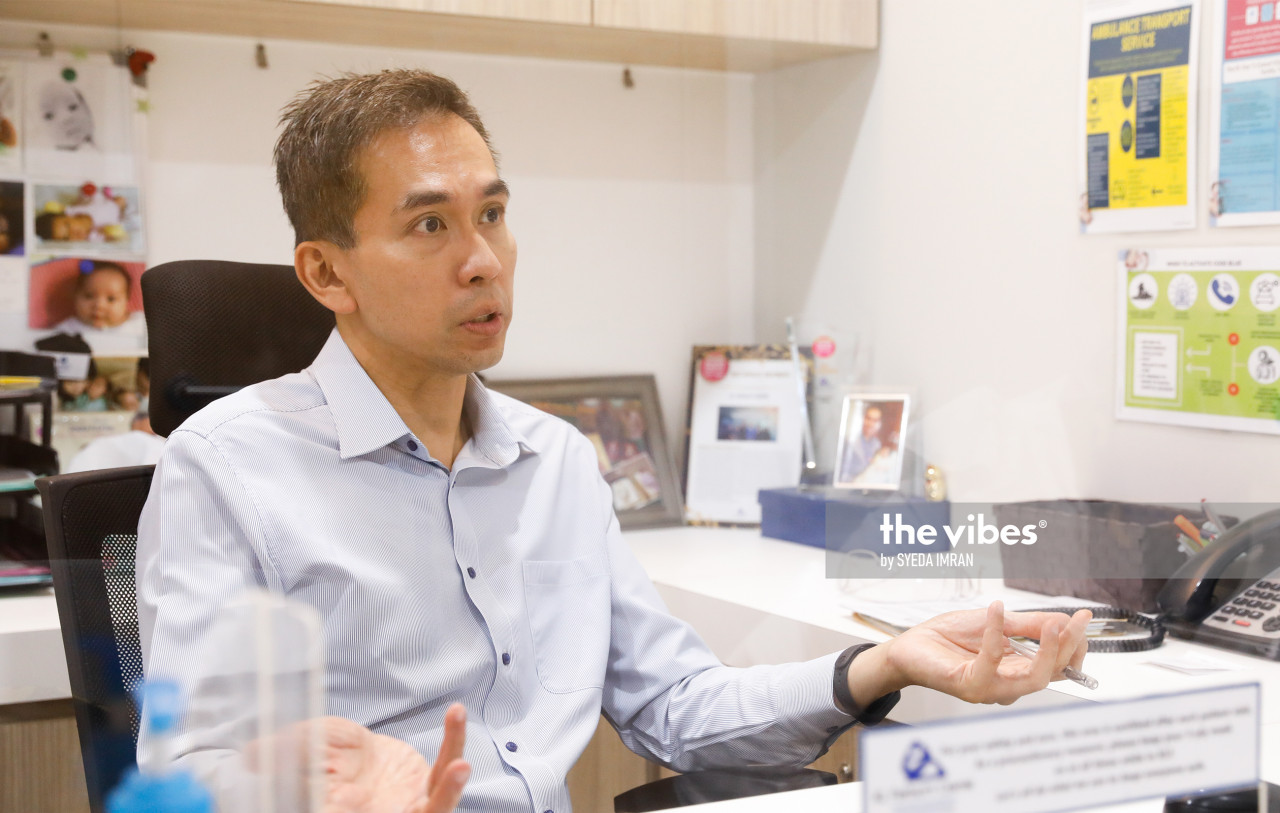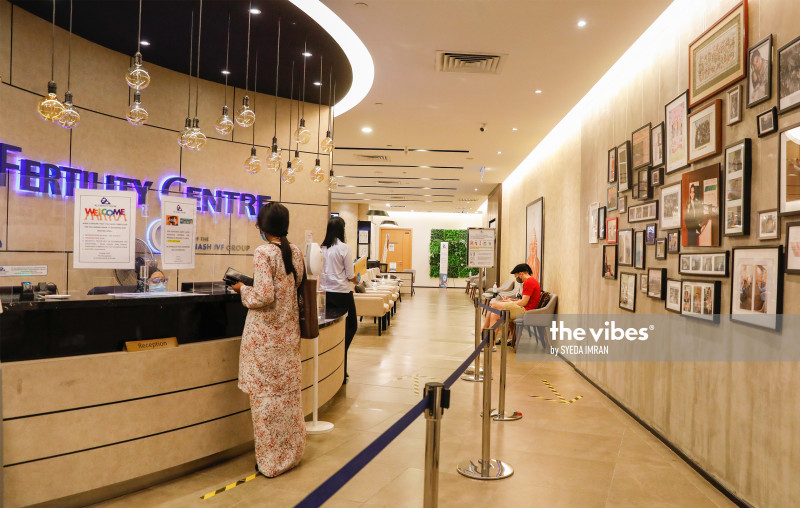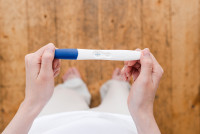FERTILITY is the embodiment of what it means to be a woman, right?
Hold that thought – or just scrap it ...
It's little wonder why many members of the fair sex facing infertility stay silent. Because the weight of producing offspring is solely upon the one partner that happens to have a womb.
Dealing with the agony of not being able to conceive is already difficult because of the stigma (perceived or not) around the topic. How can we ensure a safe space for those who want to be vocal about it?
If you are trying to get pregnant but are having complications, remember that you are not alone.
Trying for a bun in the oven is not a cakewalk
"I beat myself up over the fact that I wasn’t ‘normal’. It took me a long time to practice self-acceptance,” said Hazwani Mokhtazar. She has been dealing with fertility issues for about eight years now.
Hazwani, or Hazie, as she is known to friends, was only 24 years old when she became aware of her reproductive health. The tell-tale sign was her menstrual cycle became irregular during times of stress.

“I went for a consultation with a general practitioner before being referred to a gynaecologist. The GP suspected I had a hormonal disorder called polycystic ovary syndrome (PCOS).
“I was stunned because I didn't think my weird period pattern had a label to it. I had thought it was common for someone my age. I was initially scared, thinking it meant cancer."
Her appointment with the gynaecologist led Hazie to discover cysts on each of her ovaries during a vaginal scan. As this came months before her wedding day, it was a blow to this otherwise vivacious personality.
“I couldn't enjoy the first few years of marriage and was constantly crying myself to sleep.
“Finding refuge in PCOS forums, support groups, books and journals helped. It gave me peace knowing that I wasn't alone in fighting this battle.
“Mentally, I'm OK now – no more crying, no more self-blame. Although, I can't deny that there are days I'll fall into the dark hole of grief. When that happens, I’ll fight to crawl out of it and simply keep focusing on the positive side of everything,” she said.
Now in her 30s, she finds that one of the biggest pressures is fulfilling family expectations of her as a married woman.
“The pressure comes when they think that a marriage isn’t complete without children. This is where the guilt develops because you're not able to give them what's expected of you.
“My husband is supportive and has made it clear that a baby doesn't affect the dynamics of our relationship. Yet, there are instances where I still can't shake away the thought of ‘I’m not enough’ at the back of my mind.”

The physical challenges for Hazie are still ongoing. She's now taking a break from any treatments after recently experiencing a miscarriage. The perception that couples dealing with infertility issues are not "trying hard enough" needs to change.
“Getting pregnant goes beyond having sex, and not everyone will take the time to understand that. It is very complex for certain groups of people.”
Becoming aware of your ‘biological clock’
Getting pregnant isn’t quite so simple or carefree. For some, it’s immediate. For others, it can take months or years, even requiring medical intervention.
“Infertility still remains a taboo mostly because it’s almost like admitting to failure,” said Senior Fertility Specialist and OBGYN consultant Dr Paul Tay when met at the KL Fertility & Gynaecology Centre.
“Infertile couples deal with a lot of stress and this comes not just from the societal pressures they get internally and externally, but also from the treatments that they need to endure. This causes a lot of emotions to build up.”
In better creating a support system, he said: “Perhaps schools need to start incorporating learning sessions that not just educate about the reproductive system but also on fertility and what it entails. For example, topics on ovulation time and importance of age as a factor in family planning.
“Counselling services are available in some fertility clinics, and we do have such aid here at the centre. But, support groups are still limited since patients prefer a one-to-one consultation. [Many] oppose to discussing it in a big group setting.”
Initiatives conducted by the National Population and Family Development Board (LPPKN) must be more accessible. Advocating for public forums to help inform the policy is a good step if the goal is to de-stigmatise infertility and lead to more understanding.

On the necessity of information, Dr Tay said that early education can – in some ways – help to "hack", if not overcome, the impact that age has on fertility.
“Aging is a biological fact and that the potential to have children decreases as you age needs to be emphasised (if not already). Of course, the probability differs between couples, but it [age] greatly influence fertility, followed by reproductive complications, lifestyle habits and environmental factors.
“Women are most fertile in their late teens to early 20s. And if they have been trying for a baby for more than a year, they should seek a consultation and get tests done.
For those who are more than 35 years old, the duration is less – at 6 months instead,” he said. It’s almost impossible for women aged 45 and above to conceive the natural way and he recommends getting specialist help if one is still hopeful.
To understand the reality of couples dealing with infertility struggles, it's only right to look at the existing policy and available resources. Yet, the chase experienced – and still ongoing – with LPPKN to understand the complications and possible efforts to address subfertility/infertility issues in the country is a long-drawn back-and-forth affair.
In short, attempts to identify the full-scale plan of action for treatments or even breaking down the National Family Planning policy in depth – focusing at the integration into formal education system and non-formal as well as learning to what extent the policy covers education on fertility – is a bust.
The irony of having to race against time in the face of fertility diagnostics and the above experience doesn’t seem to harmonise well, does it?
Not just a female issue
A big misconception that needs clearing is infertility being a "female issue".
“This is usually the case for most people judging from the outside – people often forget that it takes two to make a baby,” Hazie bluntly noted.
An infertility diagnosis is not easy, but it is necessary for both partners if they are thinking of starting a family.
“For men, we will conduct a sperm test to determine the number, shape and motility (movement) of the sperm,” explained Dr Tay on the process.
“A small number of men suffer from impotence (erectile dysfunction) where they have difficulties having sex, and this can be a symptom to look out for.
“A more extensive test will be conducted for female patients to check hormones, ovarian functions and ovulatory problems.
“Symptoms include irregular period cycles – where it’s between 40 to 80 days – and intense period pain. There may be issues with high male hormones where they have severe acne and may have more hair on the body or on the face.”
There are several treatments available, but in-vitro fertilisation (IVF) treatment, albeit with the risk of potential failure, still gives the highest success rate. It works for almost everyone for as long as the sperm and eggs are healthy.
But IVF is not a simple procedure where you can book an appointment like any general doctor’s checkup. Cost is a major concern as it averages between RM15,000 to RM20,000 for a standard treatment.
“Unfortunately, financial element is one of the biggest challenges faced by infertile couples. IVF is still heavily self-funded since we get little subsidy from the government for fertility treatments. For public hospitals, there are only about 100 (IVF) cycles granted per year, which is considered relatively low.”
This is the reason why we intended to gain LPPKN’s stance on the matter. Where is adequate subsidisation for fertility treatments and current limitations that curtail it?
As a society, our needs have changed where starting a family and carrying offspring comes later in age. This is usually in our late 20s, which is early by today’s standard. If this is to be the case, we need to be more aware of our life choices as our biology is linked to it.
“Egg freezing is the way forward and an option when we pair societal norms with women who are more career-driven and forward-thinking,” said Dr Tay. It is essentially part of the IVF process.
There is no great campaign carried out on this type of treatment nationwide, but it is available for consideration.
For Muslim women in Malaysia, it is not so simple as the fatwa only encourages egg freezing if the woman is unable to conceive naturally. This has to be because of a medical condition, and not for social reasons where young single women freeze their eggs to become pregnant later in life.
How do we justly determine "social reasons" one may ask, since it’s a subjective argument. On this, the writer will need to follow up with a different article since reproduction is a matter of survival and certainly an individual right.
So far, noteworthy discussions on prohibitions and considerations under syariah law (particularly Sunni predominance) have been active in Egypt. Its Islamic advisory, justiciary and governmental body, Dar al-Iftaa, declared – based on its Facebook statement – that egg freezing is permissible upon strict and careful conditions.
The takeaway here – if you are in your late 20s, or older – is in being able to sufficiently answer “What are my options?”. – The Vibes, November 14, 2020






















